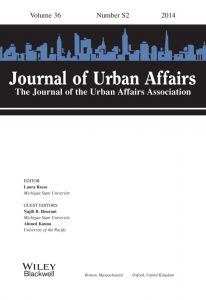Generational Changes in a Time of Evolving LGBTQ Rights
(Source:http://commons.wikimedia.org/wiki/Category:Demonstrations_and_protests_in_support_of_LGBT#/media/File:Russian_Embassy_in_Helsinki,_LGBT_pavement.jpg) In an age where millennials are starting to take primacy in the visibility of political change and its climate, especially in regards to LGBTQ advancements, the older LGBTQ generations are realizing that soon enough the millennials will need to take command of their political positions. Many of the older LGBTQ generations have been trailblazers from the start of an era known as the long 1960’s: having been there at the Stonewall riots, to now holding office positions in politics...



1467-7660/asset/DECH_right.gif?v=1&s=a8dee74c7ae152de95ab4f33ecaa1a00526b2bd2)
